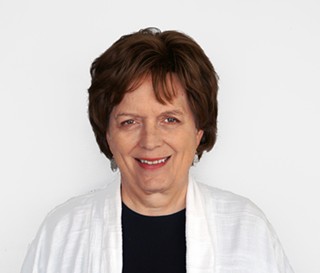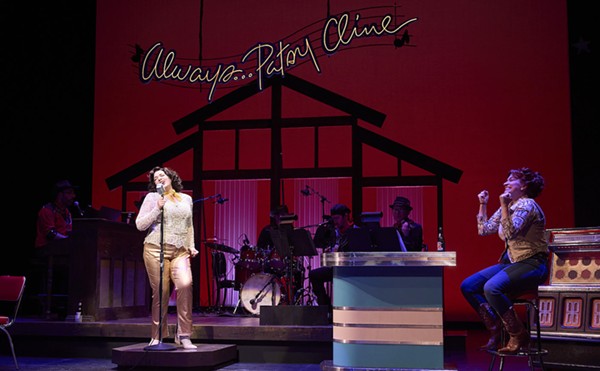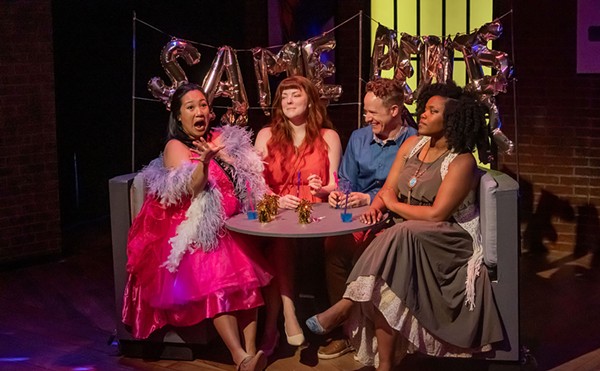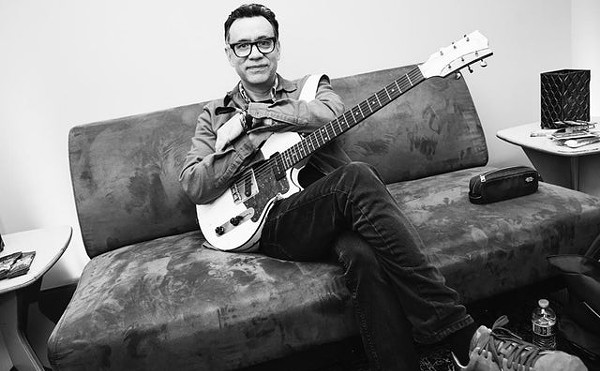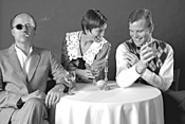
This is the milieu in which Tony Kushner places A Bright Room Called Day, now at Cleveland Public Theatre, the play he wrote a couple decades ago (before Angels in America) as a response to the reelection of Ronald Reagan. Now adapted to reflect the current administration, the play employs two scenarios -- a group of embattled Berliners trying to survive in 1933 and a contemporary woman named Zillah obsessing over the latest outrages of the Bush administration. The current references were written by the CPT company, as the script suggests, and then approved by playwright Kushner. Bright Room speaks directly to the charge that fascism can always take control if enough people don't speak and act.
More of a deeply felt cri de coeur than a nuanced theatrical metaphor, this sometimes ham-fisted production rips away the polite veil of political doublespeak. The tension created between the historical scenario, played with fourth wall firmly intact, and the audience-directed rants from the tormented Zillah, develops a compelling momentum that nails you to the back of your seat (or drives you out of the theater, if you've got a Bush/Cheney bumper sticker on your suburban assault vehicle). Fortunately, director Lester Thomas Shane has assembled a mostly superb cast that beautifully evokes the conflicted desires and encroaching fears that beset Germans in the years before World War II.
The historical segment of the play centers on Agnes, a C-list film actress, and her coterie of friends, who are either active in or sympathetic to the Communist Party. Kushner employs the communist theme since, whatever its other faults, it is a polar opposite to the tenets of fascism. Moreover, the communists were one of the few semi-organized groups actively engaged in defying Hitler's rise as the Weimar Republic folded. In the group are Agnes's lover Husz, a one-eyed commie agitator and filmmaker; Paulinka, a successful but heroin-addicted film star; and Baz, a gay man who thinks sexual repression is the root of all evil, including Adolf. The closest friend of Agnes is Annabella, a hardworking communist organizer.
As projected-word slides trace the history of the time, these ordinary people try to balance their mundane daily concerns with the slow realization of what's happening to their beloved country. The numerous Berlin scenes are interrupted by Zillah (played with achingly honest distress by Alison Hernan), who occupies a downstage hovel lined with newspaper clippings. Zillah shares her political thoughts on numerous topics, including the reason she writes hate-filled letters to the White House, even though Bush will never read them: She believes that small grams of her anger permeate the paper and, handshake by neo-con handshake, will eventually work their way into the President's bloodstream.
Among the players, Randy Rollison gives an indelible performance as Husz, squinting through his spectacles, one of which is blacked out, to bring the expanding fascist regime into sharper focus. Tracee Patterson is a fuzzily comical combination of Marlene Dietrich and Bette Davis as Paulinka. As Agnes, Jill Levin is believably meek and unsure one moment, dedicated and strong the next -- in other words, like most people. In a stellar cameo appearance, Charles F. Kartali appears as the devil himself, dressed in formal 19th-century attire and proudly announcing his new reign in Germany: "I am now more invisible, more diffuse -- yet more potent." However Michael Seevers Jr., as Baz, lacks the verve and projection his role demands.
It's all enacted on a stunning set designed by Trad A. Burns, a severely raked and canted stage that plunges to a knifepoint directed at the audience like an SS dagger. Shattered walls exposing the fragile lath underneath stand as a visual symbol of the fast-disintegrating German society. Director Shane uses recent audio clips of political discourse to flesh out Zillah's scenes and augment the comparisons of the two worlds.
Political theater is never meant to satisfy everyone, and this production certainly fills that bill. But if you're up for a vigorous, brutally candid look at where many believe our country is headed, get over to CPT soon. And bring an undecided voter with you.

